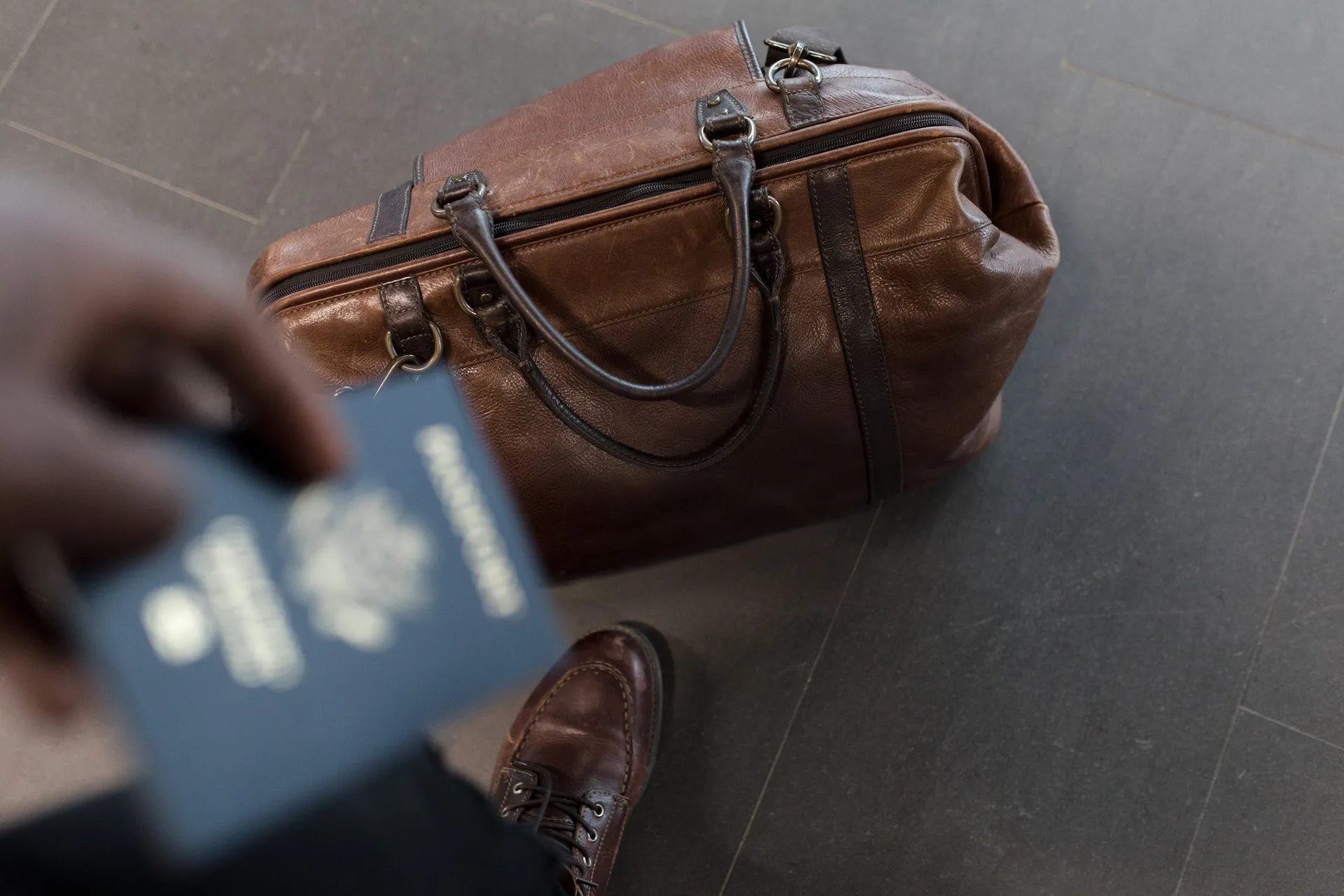Irish Citizenship Application
Ireland is an independent and sovereign nation, with specific laws and rules about who is entitled to Irish citizenship. A person can become an Irish citizen through birth, descent, naturalisation, or marriage to an Irish citizen.
As a foreign national, you can apply for Irish citizenship if you have spent a required minimum period of reckonable residence in Ireland. Also, if you have Irish ancestry, you are eligible for Irish nationality and citizenship.
Call us on +44 (0)333 414 9244 or +353 (0) 61 518 025 for comprehensive advice about your Irish citizenship application.
Read our 1001 reviews
Request a call back from our immigration experts
Benefits of Choosing IAS‘ Ireland Immigration Lawyers
When it comes to obtaining an Ireland visa or permit, IAS Ireland immigration lawyers are well-equipped to help you.
With IAS’ track record of successfully helping clients visit or immigrate to Ireland successfully, we can help you achieve your goal.
Our dedicated immigration lawyers provide our services through a comprehensive and personalised approach. With IAS, you enjoy:

Compassionate support from an experienced immigration lawyer dedicated to your success



Support in gathering supporting documents and completing a high-quality application.



Confidence that your case is being handled by an experienced team.



In-house document checks done by lawyers who are well-versed in Ireland immigration matters.
Services we Provide
Getting the Citizenship in Ireland
Most Irish citizens automatically become Irish when they are born. Before January 01, 2005, all individuals born in Ireland were Irish citizens by birth. After an amendment to the Ireland constitution, citizenship through birth does not serve as automatic entitlement to all individuals born in the country.
If you have Irish parentage or associations, you may apply for Irish citizenship. If you were born abroad, you are entitled to Irish citizenship if your parents or grandparents were born in Ireland. You may claim citizenship through the Foreign Births Register.
You can also apply to become an Irish citizen in case you are married to a citizen of Ireland and reside legally in the country. If you are a foreign national residing in Ireland, you can become an Irish citizen through naturalisation. The majority of foreign nationals wishing to become Irish citizens take the route of citizenship by naturalisation.
For your application to be considered, you must fulfil several requirements. Most importantly, you must have spent at least five years residing legally in Ireland. This is referred to as reckonable residence. Under certain special circumstances, three years of legal residency is acceptable.
If your citizenship application is approved, you will attend a citizenship ceremony. Once you are an Irish citizen, you have full unrestricted access to State freedoms, and you are eligible to apply for an Irish passport.
What is Irish Citizenship by Naturalisation?
Naturalisation refers to the legal process or act through which a non-citizen of a nation can obtain citizenship or nationality of that country. Naturalisation may involve an application and approval by legal authorities, or it can be automatic via a statute (no effort on the part of the individual). Irish citizenship by naturalisation is the legal process where a foreign national with no ancestral or familial ties to Ireland can become an Irish citizen.
The Irish Minister for Justice holds the discretionary power to naturalise a foreigner as an Irish citizen. Irish citizenship by naturalisation is granted on several fundamental criteria, including:
1. Age
You have to be above the age of 18 years. You may apply for a minor in three scenarios. The child must have been born in Ireland after January 1, 2005, and is not eligible for citizenship through birth. The minor must have Irish parentage or associations. The child’s parent is a citizen of Ireland through naturalisation.
2. Character
You must be of good character. Legally speaking, there is no definitive definition of being of good character. Nonetheless, the national police (The Garda Siochana) formulate a report regarding your background.
Information used to determine your character include your criminal records, current ongoing investigations against you, driving infractions committed, open felonious cases, some civil cases against you, or warning and cautions you may have received. On your application form, you may be required to declare if the above cases apply to you.
You will be granted a chance to explain why legal action is being taken against you. The Citizenship authorities may also contact you later for additional background information regarding your associations with Ireland. If you have breached the conditions of the visa, permit or stamp you have been residing under, your naturalisation application will likely not be accepted.
3. Future Intentions
You must intend to continue your residency in Ireland in good faith after naturalisation. You must prove that you intend to stay in Ireland once you become a citizen. If the Ireland authorities approve your naturalisation application and you move away from the country, you have to complete Form 5.
This form documents your intention to retain Irish citizenship during your temporary stay abroad. Also, you have to declare loyalty to Ireland and fidelity to the nation if your application is approved. You have to swear to observe the country’s laws and respect its democratic values. You will make these declarations at the citizenship ceremony.
4. Lawful Residency in Ireland/Residency Requirements
You must have resided lawfully in Ireland for a certain period. You are entitled to apply for citizenship by naturalisation if you have legally resided in the country for five years (60 months). This requirement is referred to as reckonable residence. Also, you must have one year (365 days) of reckonable residency in Ireland you submit your application for citizenship by naturalisation. The residency must be continuous.
You may leave the country for a period of up to six weeks per year in total and still remain a lawful resident that year. In case you leave the country for more than six weeks, that period will not be counted as part of reckonable residency. In the event that an emergency necessitates you to leave the State for more than six weeks, you must explain it in your naturalisation application.
If you take more than six weeks outside the country during the year before your naturalisation application, you cannot make your application that year. You have to wait until next year. Altogether, an applicant must have five years of reckonable residency from the previous nine years. Some applicant categories are allowed to apply after three years of reckonable residence. The reckonable residence conditions have some exceptions including the following:
- If you are the civil partner or spouse of an Irish citizen.
- If you are a recognised refugee (Geneva Convention).
The Minister for Justice and Equality can waive the reckonable residence conditions from five years to three years in the above instances.
What Counts Towards Reckonable Residence in Ireland?
If you are not a national of the UK, Switzerland and the European Economic Area (EEA), certain residency periods may count as reckonable residency necessary for qualification for naturalisation. If you have been lawfully residing in Ireland as a holder of a type of long visa, such as an employment visa, granting you permission to live in the country, this will count towards reckonable residence requirements.
The same applies if you reside in Ireland as an Irish citizen’s civil partner or spouse. Below are some instances of time periods that count towards reckonable residence:
- Stamp 1 – time you spent in the State under a work permit.
- Stamp 1G – time you spent in Ireland as the civil partner or spouse of a work permit holder.
- Stamp 3 – time you spent as the dependent of an employment permit holder or other legal Ireland resident.
- Stamp 4
- Stamp 5
- Below are examples of residency periods that do not count towards reckonable residency:
- Stamp 1G – time you spent on Third Level Graduate Scheme under this stamp.
- Stamp 1A
- Stamp 2 – time you spent under a student visa.
- Time you spent in the State while undocumented.
- Time you spent in the State under a Tourist Visa for non-EEA nationals.
The Immigration Service Delivery website features an online residency calculator that you can use to determine if you meet the conditions for Irish citizenship by naturalisation. If you are a non-EEA national, you must complete the online residency calculator when submitting your naturalisation application.
Immigration permission stamps and documents from the Department of Justice & Equality indicating your granted permissions serve as proof of the length of your residency in Ireland. When applying for citizenship by naturalisation, it is crucial to keep your immigration registration updated with no gaps.
It is important to allow enough time to facilitate your GNIB appointment to renew your permission before expiry. Otherwise, gaps in your residence permissions create situations where your residency is not considered continuous for citizenship application purposes. Also, if you spent extended periods outside the country, you will be required to explain the absences.


Required Documents for Irish Citizenship Application
Several aspects and factors determine the specific documents you must include in your naturalisation application. These factors include the route you choose to acquire Irish citizenship by naturalisation and your particular circumstances as an applicant.
Adult Irish citizenship applications are completed through Application Form 8. The documents required for the standard Application Form 8 include:
- A valid original passport
- All passports you had held from when you entered the country, including biometric pages as well as all pages with permission and immigration stamps
- Two passport photographs. They must include your signature and date on the back of each.
- A copy of your birth certificate (certified)
- A copy of your Irish Residence Permit(certified)
- A copy of the permission to remain letter. The Irish Naturalisation and Immigration Service issues these letters.
- Copy of online residency checker form
- Copies of your bank statements for all your bank accounts for at least 3 or the last 6 months.
- Letter from your current employer documenting the date you began working
- Copies of 3 payslips from the past 6 months plus a copy of your tax statement(P60) from the Revenue Commissioners for every year of your residence in Ireland
- A copy of your civil partnership/marriage certificate when applicable(certified)
Note that if you are a national of the UK, Switzerland or an EEA country, you are not required to provide the complete online residency checker with your application. You must prove your reckonable residency by including documents detailing your history in Ireland. The application form includes documents suitable for that purpose.
If this is the case for you, you must provide three different residency proofs for every year you have resided in Ireland. The documents must include your name and address. We can provide expert advice on the specific documents you need to include in your Irish citizenship application.
Irish Citizenship through Marriage or Civil Partnership
If you are in a civil partnership with or married to a citizen of Ireland, you may apply for Irish citizenship by marriage. This is among the fastest routes to get citizenship in Ireland. To apply, you have to meet the conditions below:
- You are above the age of 18 years.
- You are married or in a civil partnership for at least three years.
- You have lawfully resided in Ireland for three of the last five years before submitting your application. Before the date you submit your application, you must have resided continuously in the country for one year.
- You have the intention to reside in Ireland after becoming an Irish citizen.
- You reside with your partner.
- You have good character.
To apply for naturalisation through this route, you must complete Application Form 8. You and your partner have to fill out the declarations detailed on the back of this form.
You are required to provide the documentation detailed in the previous section, as well as a certified copy of your civil partnership/ marriage certificate with your application. Also, you will be required to provide three different documents proving residency detailing your names and addresses for every year you and your spouse have resided in Ireland.
Irish Citizenship Application for a non-EU/EEA/Swiss Dependant Young Adult
If you are a non-EU/EEA/Swiss dependent young adult, you may be eligible to apply for Irish citizenship by naturalisation. You may use the reckonable residency of your parents if you lack the required reckonable residence requirements. Ireland considers you a young adult if:
- You are between the ages of 18 and 23 when you apply for naturalisation.
- You legally immigrated to Ireland with your family unit.
- You currently attend secondary school in Ireland or transfer directly from secondary school to third-level education.
- You are still continuously dependent on your parents.
Citizenship application for a non-EU/EEA/Swiss dependent young adult is the only exception where Stamp 2 permissions may count towards reckonable residence. If you are using this route, you must complete Application Form 8.
You must provide certain documents from the aforementioned documentation list with your application. You must also include a letter from your college or school indicating the date of your registration and attendance.


Irish Citizenship by Birth
You may be an Irish citizen through birth if you or your parents were born or adopted in the country. If you do not have entitlement to Irish citizenship through birth, you can become a citizen when you enrol your birth on the Foreign Births Register. An individual is a citizen of Ireland through birth if they are part of the categories below:
1. Born in the Country before January 1, 2005
If you happen to have been born in Ireland prior to January 1, 2005, you are a citizen of Ireland through birth automatically. If you happen to have been born in Northern Ireland prior to the same date, you could claim Irish citizenship. You can elect to be a citizen of Ireland and apply for an Irish passport.
2. Born in the Country after December 31, 2004
Irish citizens voted to alter the constitution of Ireland to end entitlement to Irish citizenship through birth automatically by all individuals born in the country. As such, if you were born after January 1, 2005, the entitlement to be a citizen of Ireland depends on your parents’ residency history and nationality. If when you were born, either one of your parents was a citizen of Ireland; you become a citizen of Ireland automatically if you were born in the country.
3. Born Abroad to an Irish Parent
In case you were born abroad and your parents were born in Ireland and had entitlement to Irish citizenship, you become a citizen of Ireland through birth automatically.
4. Born in the Country and Cannot Claim Citizenship to another Nation
You may have been born in the Republic of Ireland, and the above categories do not apply to you. If this is the case and you cannot claim citizenship to another country, you become a citizen of Ireland through birth automatically.
5. Irish Citizenship in Case You Were Born Outside the Country
If you were born abroad and your parents were born in the Republic of Ireland and held citizenship status when you were born, you become a citizen of Ireland through birth automatically. If you were born abroad to parents who were also born abroad, you can become a citizen of Ireland
if one of your parents was a citizen of Ireland when you were born.
You must register this birth in the Foreign Births Register to claim citizenship by birth. The only exception is if your parents happened to be outside the country in public service when you were born. Your Ireland citizenship becomes valid from the registration date rather than from your date of birth.
Can I Become an Irish Citizen by Descent?
Citizenship by descent is another route to Irish citizenship you can take if you were not born in Ireland and do not reside in the country. If one or both of your grandparents were born in the country, but none of your parents were born in the country, you can become a citizen of the Republic of Ireland.
Also, if one or both of your parents were born in the country and they held Irish citizenship when you were born, you are entitled to apply for citizenship. You are not automatically entitled to Irish citizenship based on previous extended ancestry or ancestors that are not your parents and grandparents.
Also, you are not allowed to claim citizenship based on extended familial relations (cousins, uncles, or aunts) if your parents or grandparents were not citizens of Ireland when you were born. You will be required to enroll your birth in the Foreign Births Register.


Irish Citizenship by Association, Adoption, and Special Declaration
You may apply for Irish citizenship on the basis of Irish associations. Irish association refers to relations through blood or adoption by a citizen of Ireland. Irish citizenship through association is at the discretion of the Minister.
If you want to apply via this route, you must have lawfully resided in Ireland for at least three years as proof of your connection to the State. Also, these applications take longer to process (up to two and a half years).
If a citizen of Ireland adopts a minor who is not a citizen of Ireland, the adopted minor becomes an Irish citizen. Also, some individuals can claim Irish citizenship through several special declarations.
Applying for Irish Citizenship on Behalf of a Minor
Parents of eligible minor children can apply for citizenship on their children’s behalf.
In order to be eligible, the minor must meet the following criteria:
- Be under 18 years of age
- Not be married
- Meet all the relevant conditions for residence
- Have at least one naturalised parent
Note that if the child was born on the island of Ireland on or after 1 January 2005, their entitlement to Irish citizenship depends on the following:
- Their parent’s residency history in Ireland
- The child’s residency history in Ireland; the child must have lived continuously in Ireland for one year before applying, and in the 8 years before that, they must have lived in Ireland for a total of two years to be eligible.
The Minister for Justice ultimately has the discretion to grant citizenship to minors in the case of Irish descent or association. Applications are approved by a case-by-case basis.
The following documents must be provided in support of the child when applying:
- A certified colour copy of the biometric page of the child’s passport (the copy must be certified by a solicitor, commissioner for oaths, peace commissioner or notary public)
- A certified copy of the parent’s naturalisation certificate or the biometric page of their Irish passport
- Original school letters from each school attended by your child for at least three years showing enrolment dates, periods of attendance and the number of days attended. If the child has attended school for less than three years, then the following may be accepted:
- A letter from a creche, playschool or Montessori showing enrolment dates and periods of attendance
- A letter from the Department of Social Protection stating that the parent is receipt of child benefit for the child
- A letter from the parent’s doctor stating that the child is registered with the practice, the date the child was first registered and the dates the child attended the surgery, including your child’s Patient Immunisation Record
- A letter from Tusla Educational Support Service (if the child is home-schooled)
- A copy of the child’s current Irish Residence Permit issued by the Garda National Immigration Bureau (GNIB) or Immigration Service Delivery (ISD) (if applicable)
Irish Citizenship if You Were Declared a Refugee Under the International Protection Act 2015
Persons declared refugees or granted subsidiary protection under the International Protection Act of 2015 can apply for Irish citizenship after a few years.
You can apply for Irish citizenship after three years if you were granted refugee status. However, if you were only granted subsidiary protection or permission to stay, you can apply for citizenship after five years.
The Irish Refugee Council does not offer support for refugees applying for citizenship. However, the Citizenship Division team provides guidance and support for refugees through the citizenship process. To qualify for Irish citizenship as a refugee, you must:
- Be at least 18 years old
- Have a declaration of refugee from the Irish Minister of Justice
- Have sufficient proof of identity. The Citizenship Guidance Document outlines a special provision for this.
- Have resided in Ireland for the last three years.
Ensure your immigration permission is registered throughout your residence in Ireland. Gaps in your residence registration make you ineligible to apply for citizenship.Persons declared refugees or granted subsidiary protection under the International Protection Act of 2015 can apply for Irish citizenship after a few years.
You can apply for Irish citizenship after three years if you were granted refugee status. However, if you were only granted subsidiary protection or permission to stay, you can apply for citizenship after five years.
The Irish Refugee Council does not offer support for refugees applying for citizenship. However, the Citizenship Division team provides guidance and support for refugees through the citizenship process. To qualify for Irish citizenship as a refugee, you must:
- Be at least 18 years old
- Have a declaration of refugee from the Irish Minister of Justice
- Have sufficient proof of identity. The Citizenship Guidance Document outlines a special provision for this.
- Have resided in Ireland for the last three years.
Ensure your immigration permission is registered throughout your residence in Ireland. Gaps in your residence registration make you ineligible to apply for citizenship.
How to Apply for Irish Citizenship?
Once you have determined the appropriate route to Irish citizenship, the application process involves the following steps:
1. Checking That You Qualify
To become an Irish citizen, you must meet the eligibility conditions stipulated in the Nationality and Citizenship Act as detailed herein.
2. Fill in an Application Form
Depending on your route to Irish citizenship, you have to fill in the current application forms on the Immigration Service Delivery website. These forms include Form 8, Form 9, Form 10, and Form 11. Carefully read all the notes attached to the forms, and do not leave any sections blank.
3. Gather Your Documents
The relevant supporting documents will depend on your route to Irish citizenship and your circumstances. If your documents are not in English, they must be translated by a professional translator. Note that if you are an adult applicant, you are required to send a tax clearance certificate that certifies that your tax affairs are in order.
If for any reason, you are unable to include the required documents, you must include an explanation as to why you cannot attach the documents. In case you are unable to include your marriage certificate or birth certificate, you may use affidavits. Affidavits are only acceptable if you can prove that you cannot obtain the certificates.
4. Make a Declaration
Once you have filled out the relevant application form, you must make a statutory declaration when you are ready to submit the form and documents. A statutory declaration is an official written statement swearing that the information you have provided is true.
A party authorised to witness statutory declarations must witness the statement. These parties include a solicitor, a notary public, a commissioner for an oath, or a peace commissioner.
5. Send Your Application
It is important to carefully check your application form and ensure you have included all the relevant documents. The application form contains a checklist that you are required to follow. Once your form and relevant documents are in order, you send the same to the relevant application office, whose address will be included in the form.
Irish Citizenship Application Cost
When submitting your application form and attached documents, you must pay an application fee. The Irish citizenship application fee is €175. You are only allowed to pay the application fee via banker’s draft.
Any bank can provide a banker’s draft. You make the payment to the Secretary-General, Department of Justice. No other payment method is accepted. The application fee is non-refundable. If your application is rejected, you will not get this amount back.
How Long Does It Take to Get Irish Citizenship?
Most applications for Irish citizenship by naturalisation are processed within 12 months. Immigration Service Delivery contacts you within several weeks to inform you if your application has passed the first processing stage. During this time, ISD may request additional documentation or clarification on the specific information you include in your application, after which you are afforded an application number.
What Happens if My Irish Citizenship Application is Successful?
If your application is approved, the ISD will send you a letter notifying you that the Minister intends to grant you a Certificate of Naturalisation. You will be requested to pay the Certification Fee and submit your Irish Residence Permit if you are a non-EEA/UK/Swiss national. You also will be invited to attend a citizenship ceremony to make a declaration of fidelity.
You will receive your Certificate of Naturalisation in the post a few weeks after the ceremony. You will then be eligible to apply for an Irish passport.
What Happens if My Irish Citizenship Application is Refused?
If your application is refused, you will ne notified of this and be given the reason as to why. You will not be able to appeal the refusal, though you will have the opportunity to apply for citizenship again.
There are a number of potential reasons why your application may be refused. The ISD lists the reasons below as common situations for why applications are often refused:
- Applicant did not reach score of 150 points on scorecard and did not include an affidavit explaining why
- Applicant did not complete all relevant sections of the application form, such as forgetting to add the signature or date, or including the incorrect date
- Application form may be missing pages or applicant may not have included statutory declarations, affidavits, or proofs of identity and residency
- Supporting documentation is of poor quality, such as due to poor photocopying or documentation not being legible or readable
What Is The Irish Citizenship Ceremony?
Once your application for citizenship by naturalisation is approved, you may be invited to attend the Irish citizenship ceremony. During this ceremony, you make an official declaration of loyalty and fidelity to Ireland. You will receive your naturalisation certificate at the ceremony. With this certificate, you officially become an Irish citizen, and you can apply for an Irish passport.
Citizenship Ceremonies and Certification Fees for Ireland
If your application for naturalisation is approved, you’ll be invited to attend a citizenship ceremony. The ceremony will be presided over by a judge, and a government minister may be in attendance. During the ceremony, you’ll declare fidelity to the Irish nation and loyalty to the state. It is only after making this declaration that you become an Irish citizen.
You’ll be issued a certificate of naturalisation via registered post in the weeks following the ceremony. Once you receive your Certification of Naturalisation, you can apply for an Irish passport through the Department of Foreign Affairs.
The Certificate of Naturalisation is irreplaceable and must be kept safe and free from alterations. Any damage or unauthorised alteration to your Certificate of Naturalisation will make it invalid for a passport application.
Application for naturalisation costs €175. The fees for a Certification of Naturalisation are as follows.
- Adult application fee – €950
- Widow, widower, or surviving civil partner of an Irish citizen – €200
- Application on behalf of a minor – €200
- Refugee, programme refugee, or stateless person – No charge
Handling a Lost Certificate of Naturalisation
A Certificate of Naturalisation is a valuable and irreplaceable document. If your Certificate of Naturalisation gets lost or stolen, you must write to the Citizenship Division of the Immigration Service Delivery (ISD) to report the loss or theft. You can write to the ISD at the Department of Justice Office, Rosanna Road, Tipperary Town, Tipperary, E34 N566, Ireland.
The ISD does not keep duplicate copies of Certificates of Naturalisation, so you won’t be given a replacement. However, they’ll write you an official statement proving your citizenship at no cost. You’ll need this statement to accompany your passport application as evidence of Irish citizenship.
Revocation of Irish Citizenship
The Minister of Justice can revoke your Irish Citizenship under certain circumstances. Your naturalisation certificate will be revoked if the Minister is satisfied that:
- You obtained your Irish citizenship by fraud, misrepresentation, whether willful or innocent, or material concealment of facts or circumstances
- You have acted in a way that shows a lack of fidelity to the nation and loyalty to the State, and therefore pose a serious threat to the State.
- You have lived outside Ireland for more than seven years without a reasonable excuse and have not registered annually in the prescribed manner or registered your intention to maintain Irish citizenship. This does not apply if you obtained citizenship by descent or Irish associations.
- You obtained another citizenship voluntarily, other than through marriage or civil partnership.
- You are under the law or a citizen of a country at war with Ireland.
Before revoking your citizenship, the Minister will notify you of his intention to revoke your naturalisation certificate, stating the grounds for the revocation and your right to an inquiry. You can apply to the Committee of Inquiry to review the Minister’s decision. The committee can reject or affirm the Minister’s decision.
Irish Citizenship Application Forms
While the application process for Irish citizenship is almost the same for all applicants, the application forms are different. There are specific application forms for different categories of applicants. The Irish citizenship application forms are as follows:
- Form 8 – Adult application form
- Form 9 – For a minor, if one of the minor’s parent is a naturalised Irish citizen
- Form 10 – For a minor, if the minor is applying based on Irish descent or associations
- Form 11 – For a minor, if the minor was born in the State of Ireland after 1 January 2025 and was not eligible for Irish citizenship at the time of birth, but has since gained three years of reckonable residence.
Ensure you use the correct online application form when applying for Irish citizenship. The wrong form can result in your application being rejected.
Benefits of Irish citizenship
Obtaining Irish citizenship by naturalisation entitles you to the same rights and privileges available to Irish citizens by birth. Some of the benefits of Irish citizenship include:
- Right to live, work, and study in Ireland and the UK
- Right to live, work, and study anywhere in the European Union
- Right to own an Irish passport and enjoy visa-free travel to various countries, including Australia, Canada, and the USA.
- Access to the Irish healthcare system
- Access to free tertiary education
- Right to vote in Irish elections at all levels, including local elections, general elections, presidential elections, and referendums, and run for public office.
- Right to vote in the EU and be elected to government in the EU
- Consular assistance from Irish embassies and consulates worldwide.
- Dual citizenship – Ireland allows you to keep your other nationalities when acquiring Irish citizenship
- Family reunification – Irish citizenship enables you to bring your family members to join you in Ireland.
How Do I Register a Birth on The Foreign Births Register?
The Foreign Births Register enables descendants of Irish citizens who move abroad to claim Irish citizenship. Below are the steps for registering a birth on the Foreign Births Register:
Before application – ensure that you are eligible to apply and have an email address.
Gather your documents – check that you have all the necessary documents, including original birth certificate, certified copy of identification (national ID card, driver’s licence, passport), four photographs, and similar documents related to the Irish citizen you are basing your application on.
Complete online form – You must submit your application online on the Department of Foreign Affairs website. You submit the completed form electronically and print a hard copy to sign and send.
Pay the application fee – after completing the application form, you pay the registration fee online.
Have your documents, form, and photographs witnessed by a witness personally known to you.
- Complete online form – You must submit your application online on the Department of Foreign Affairs website. You submit the completed form electronically and print a hard copy to sign and send.
- Pay the application fee – after completing the application form, you pay the registration fee online.
- Have your documents, form, and photographs witnessed by a witness personally known to you.
How Can I Get a Document Certified?
A number of the documents required for application have to be certified. Document certification means they are declared “true copies.” You can get your document certified when you make your statutory declaration, as detailed herein. A solicitor, public notary, peace commissioner, or commissioner of oaths can certify your documents, including your passport, birth certificate, spouse’s birth certificate, and marriage/civil partnership certificate.
How IAS Can Help
Applying for Irish citizenship can be a lengthy but rewarding process for anyone looking to fully integrate into Irish society.
If you’re considering applying for Irish citizenship, or are looking to apply on the behalf of someone else, such as your child, IAS can help.
We are Irish immigration lawyers and solicitors working in Ireland who are well-versed in all forms of Irish nationality law. We can help guide you through the application process and eligibility criteria to help steer you to success, ensuring that your details and documents fully conform to ISD regulations. We can also help address any concerns or queries you might have about the process, ensuring peace of mind throughout.
Reach out to us on +44 (0)333 414 9244 or +353 (0) 61 518 025 or contact us online to find out what we can do for you.
Table of Contents
Table of Contents will appear here.Legal Disclaimer
The information provided is for general informational purposes only and does not constitute legal advice. While we make every effort to ensure accuracy, the law may change, and the information may not reflect the most current legal developments. No warranty is given regarding the accuracy or completeness of the information, and we do not accept liability in such cases. We recommend consulting with a qualified lawyer at Immigration Advice Service before making any decisions based on the content provided.
Frequently Asked Questions
Yes, dual citizenship is possible if you don’t want to revoke your original nationality and want to keep your Ireland citizenship. Irish law states that you do not need to give up another citizenship to apply to become an Irish citizen by naturalisation or to claim Irish citizenship by birth or descent.
Yes, once you have received Irish citizenship you will be free to apply for an Irish passport and enjoy the full benefits of being an Irish citizen.
Here at the Immigration Advice Service, we can assist you with the entire passport application, making the process as smooth as possible. Call us now on +44 (0)333 414 9244 or +353 (0) 61 518 025 for more information.
Citizenship is the legal status of belonging to a country because you were born, have ancestral connections, or have lived there for a long time. Naturalisation is a process of obtaining citizenship in a country other than your country of origin, after maintaining continuous residence there for a specific time.
There is no formal fast-track process for Irish citizenship. However, specific routes, such as citizenship by descent and citizenship by marriage or civil partnership with an Irish citizen, make you eligible for Irish citizenship faster.
The Immigration Service Delivery (ISD) typically processes citizenship applications within 19 months. After you apply, you’ll be given an application number and an e-vetting link. ISD will notify you once your application is approved and invite you to attend a citizenship ceremony.


What our clients are saying
How our UK Immigration Lawyers can help
At the Immigration Advice Service our lawyers specialise in a wide range of UK visas, nationality and asylum applications and have represented clients in various successful complex and high-profile cases.















